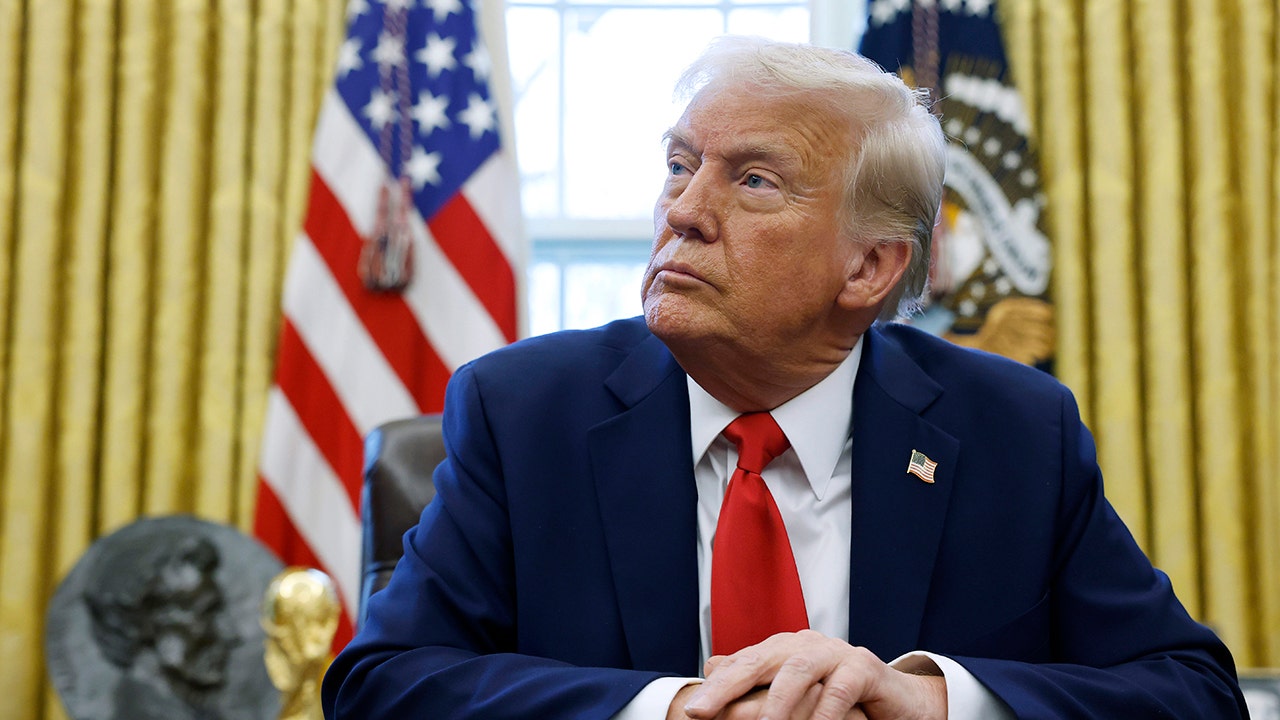Politics
8 inspectors general fired by Trump sue to get jobs back

Fired for Doing Their Job? The Inspector General Controversy
In a significant move that has sparked both legal and political ramifications, eight former inspectors general from various federal agencies found themselves abruptly dismissed by President Donald Trump. These individuals, tasked with the critical role of overseeing government operations, now claim their terminations were not only unlawful but also undermines the integrity of their non-partisan duties. The lawsuit they filed asserts that their removal was unjustified and interfered with their essential oversight responsibilities, which are designed to ensure transparency and accountability within the government.
At the heart of their legal argument lies the contention that President Trump failed to adhere to a crucial legal requirement: providing Congress with a mandatory 30-day notice prior to their termination. This omission, they argue, renders their dismissal unlawful. Furthermore, the inspectors general emphasize that they remain in their positions until Trump formally and lawfully removes them, as per legal stipulations. This stance underscores their belief in the independence of their role, essential for maintaining the integrity of government oversight.
The Legal Fight: Inspectors General Sue to Reclaim Their Roles
The legal battle initiated by the inspectors general is not merely about reinstatement; it’s a defense of the independence of their offices, which are pivotal in maintaining government accountability. The lawsuit meticulously details their backgrounds, highlighting their dedication to non-partisan oversight. They assert that Trump’s failure to provide a substantive rationale for their dismissal, beyond vague references to "changing priorities," falls short of the legal standards required for such actions.
Historically, Trump has complied with the 30-day notice requirement during his first term, a fact acknowledged by the plaintiffs. This historical compliance contrasts sharply with the recent dismissals, raising questions about the motivations behind this deviation from established procedure. The inspectors general’s lawsuit seeks to uphold the legal framework that safeguards their independence, crucial for fulfilling their oversight duties without political interference.
A Pattern of Disregard: Trump’s History with Inspectors General
President Trump’s tenure has been marked by a series of inspector generals being dismissed, a pattern that has drawn scrutiny. While Trump did adhere to the 30-day notice requirement in his first term, the recent firings, occurring without such notice, have alarmed both political allies and opponents. The termination letters, identical in content, cited "changing priorities" as the reason, a rationale the inspectors general dismiss as insufficient.
The abrupt nature of these dismissals has raised eyebrows, with critics suggesting it may be an attempt to circumvent oversight. The inspectors general, now plaintiffs, view their role as a safeguard against governmental malfeasance, and their dismissal as an assault on this critical function. Their lawsuit thus seeks to reinforce the legal protections meant to shield their roles from political whims.
Across the Aisles: Bipartisan Criticism of the Firings
The dismissals have garnered criticism from both sides of the political aisle, a rarity in today’s polarized environment. A coalition of Democratic lawmakers, joined by a Republican, expressed "grave concern" in a letter to Trump, denouncing the firings as unlawful and arbitrary. The letter erroneously stated that the firings violated the law and posed a threat to democracy and public safety. Senators Chuck Grassley and Dick Durbin, notable figures in their respective parties, co-authored a letter urging Trump to provide a lawful rationale for the dismissals. This bipartisan stance highlights the shared concern over the erosion of governmental oversight mechanisms.
Defending the Firings: The White House Pushes Back
The White House, through Press Secretary Karoline Leavitt, has defended the firings, expressing confidence in their legality. Trump himself downplayed the issue, dismissing it as a common practice, a characterization the plaintiffs vehemently contest. The argument posits that the firings were necessary due to shifting administrative priorities, with the administration prepared to defend its actions in court. This defense is set against the backdrop of assertions from fired officials like Mike Ware, who decried the dismissals as a threat to democracy and governmental transparency.
The Broader Implications: Why This Fight Matters for Democracy
The legal tussle over the inspectors general’s dismissals transcends individual job ousters; it touches on fundamental democratic principles. The inspectors general serve as independent watchdogs, ensuring government accountability and transparency. Their removal, without due process or rationale, undermines these principles, potentially setting a dangerous precedent for future administrations. This case thus becomes a crucial test of the resilience of institutional checks and balances in the face of executive power. The outcome could have far-reaching implications for the independence of oversight bodies and, by extension, the health of American democracy.
In conclusion, the dispute involving the eight inspectors general is a multifaceted issue with legal, political, and democratic dimensions. As the case progresses, it will not only determine the fate of these individuals but also the future of governmental oversight, highlighting the enduring tension between executive authority and independent accountability.


















